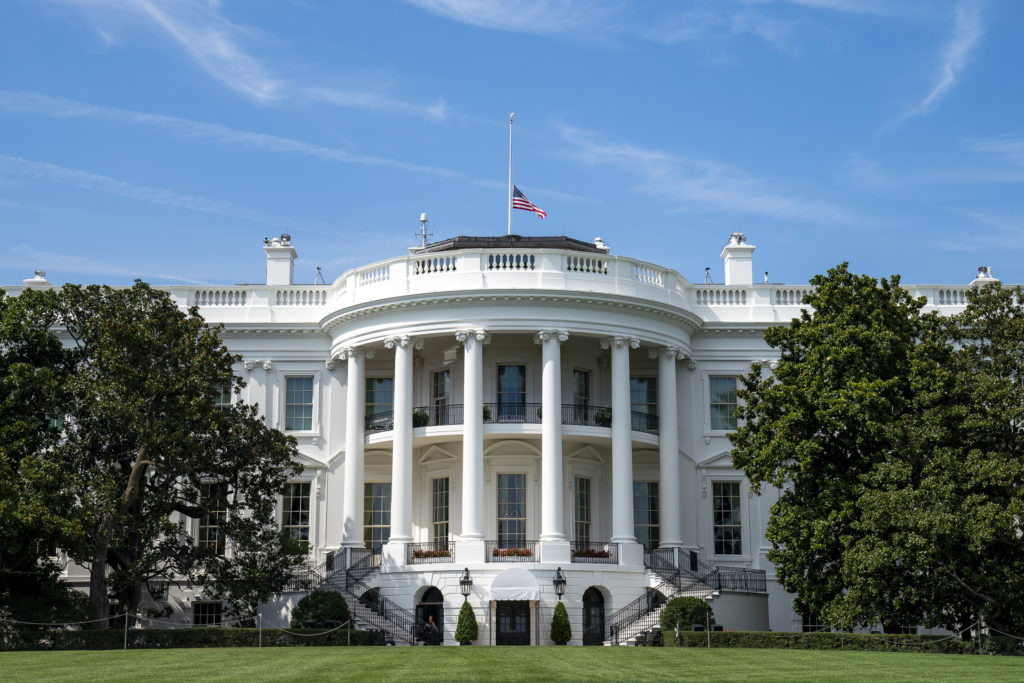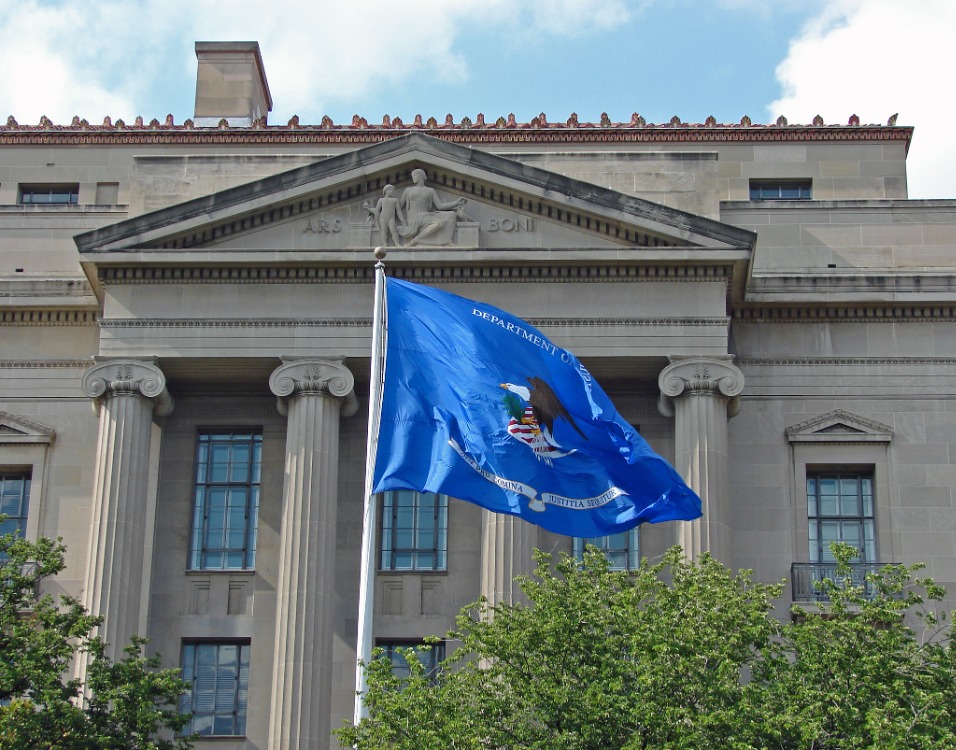The Situation: Formalist Delusions Confront Lawless Realities

Published by The Lawfare Institute
in Cooperation With

The Situation on Monday asked whether the government could win a litigation by making the plaintiff disappear.
The Supreme Court last night unanimously answered that question—almost.
All nine justices agreed that a district court order requiring the return of a man erroneously deported to a Salvadoran prison “properly requires the Government to ‘facilitate’ [Kilmar] Abrego Garcia’s release from custody in El Salvador and to ensure that his case is handled as it would have been had he not been improperly sent to El Salvador.”
They disagreed only about how aggressive the district court could be. Can it require the government to return him to the United States or only require it to attempt to persuade the government of El Salvador to do so? But all agreed that “For its part, the Government should be prepared to share what it can concerning the steps it has taken and the prospect of further steps.”
In response to the Supreme Court’s order, Judge Paula Xinis of the U.S. District Court for the District of Maryland held a hearing today and is now requiring the government to lay out the steps it is taking in daily status reports. So far, much to the judge’s frustration, the government doesn’t appear to have taken any steps to “facilitate” Abrego Garcia’s release—or, if it has, it hasn’t informed its lawyer of them.
My question is why Judge Xinis—or the six conservative justices—would trust any representation the government makes on the subject at this point.
Consider that the Justice Department placed the last attorney who answered Judge Xinis’s questions candidly on administrative leave—and removed his boss too, for good measure—for the crime. Attorney General Pam Bondi even went on national television to denounce him for alleged failure to advocate zealously for his client agency.
So as a preliminary matter, the standards of candor which Judge Xinis emphasized to the attorney that she “really do[es] appreciate” from the Justice Department, and the Fourth Circuit Court of Appeals said in response to his removal should properly temper “the duty of zealous representation, . . . particularly on the part of a Government attorney,” are enough to get you fired in this Justice Department—indeed, in this very case. As Bondi put it on Fox News, “he shouldn’t have taken the case; he shouldn’t have argued it if that’s what he was going to do.”
Given that Judge Xinis knows what happens to a Justice Department lawyer who behaves as an officer of the court during the Trump administration, why should she assume that the government’s current filings are meeting those standards?
The government’s behavior in closely related matters does not instill confidence. Recall that in the J.G.G. case, which involved nearly 300 people deported the same day as Abrego Garcia to the same Salvadoran gulag, the government concealed its plans to deport the petitioners from Judge James Boasberg and then defied his order to turn around planes carrying the deportees to El Salvador.
True to form, Judge Xinis is already finding that the government is ignoring her orders as well. Less than 24 hours after the Supreme Court ruled, she issued an order stating the following:
the Court finds that the Defendants have failed to comply with this Court’s Order. In advance of [today’s status] conference, the Court had directed Defendants to file a supplemental declaration from an individual with personal knowledge, addressing the following: (1) the current physical location and custodial status of Abrego Garcia; (2) what steps, if any, Defendants have taken to facilitate Abrego Garcia’s immediate return to the United States; and (3) what additional steps Defendants will take, and when, to facilitate his return. Defendants made no meaningful effort to comply. Instead, they complained that the Order is “unreasonable and impracticable,” and involves “sensitive country-specific considerations wholly inappropriate for judicial review.”
During the hearing, the Court posed straightforward questions, including: Where is Abrego Garcia right now? What steps had Defendants taken to facilitate his return while the Court’s initial order on injunctive relief was in effect (from the afternoon of April 4, 2025, through the morning of April 7, 2025, and since 6:35 PM last night)? Defendants’ counsel responded that he could not answer these questions, and at times suggested that Defendants had withheld such information from him. As a result, counsel could not confirm, and thus did not advance any evidence, that Defendants had done anything to facilitate Abrego Garcia’s return. This remained Defendants’ position even after this Court reminded them that the Supreme Court of the United States expressly affirmed this Court’s authority to require the Government “facilitate” Abrego Garcia’s return. From this Court’s perspective, Defendants’ contention that they could not answer these basic questions absent some nonspecific “vetting” that has yet to take place, provides no basis for their lack of compliance.
It is for this reason that she is now requiring daily status reports.
But again, why is she assuming that this requirement won’t be brought into Homeland Security Secretary Kristi Noem’s bathroom and used as toilet paper?
Consider the fate of an order by the highly respected Judge John Bates of the U.S. District Court for the District of Columbia in another matter of flagrant administration lawlessness: the administration’s attack on law firms. After Trump issued an executive order targeting the law firm of Jenner & Block, the law firm sued, and it took Judge Bates just a few hours to issue a temporary restraining order blocking the obviously unconstitutional action. The order required Bondi and Director of the United States Office of Management and Budget Russell Vought to notify agencies that they were not to implement the order’s retaliatory actions against the firm or to require disclosure—for so the executive order demanded—of “any business they do with Jenner and whether that business is related to the subject of the Government contract.”
How did Bondi react? First, the administration delayed. Then, when Bondi and Vought finally issued the required notice, the memo opened as follows:
FROM: Pamela Bondi, Attorney General Russell Vought, Director Office of Management and Budget
SUBJECT: Court Injunction Against Certain Provisions of Executive Order 14246
On March 28, 2025, an unelected district court yet again invaded the policy-making and free speech prerogatives of the executive branch, including by requiring the Attorney General and the OMB Director to pen a letter to the head of every executive department and agency. Local district judges lack this authority, and the Supreme Court should swiftly constrain these judges’ blatant overstepping of the judicial power. In this particular case, a local district judge has mandated that the Attorney General and OMB Director personally send the below notification about Jenner & Block, LLP, a law firm committed to the weaponization of justice, discrimination on the basis of race, radical gender ideology, and other anti-American pursuits. Of course, as noted in the court order, agencies are permitted to carry on their ordinary course of business which carries with it the authority to decide with whom to work.
Note this last sentence, which all but announces that—Judge Bates’s court order or no—the blacklist against Jenner will remain in place.
But the Justice Department says it is complying with court orders.
And Brutus is an honorable man.
And Bondi is entitled to a presumption of regularity.
And by the way, as Anna Bower reported this week, the Department of Energy (DOE) Office of Acquisition Management sent this email on April 7 to DOE employees—more than a week after Judge Bates’s order:
Good afternoon,
The DOE Office of General Counsel asked that the following request be sent to Heads of Contracting Activities.
Please request that your Contracting Officers reach out to their contractors to ascertain whether the contractors have business dealings or contractual arrangement with the following law and lobbying firms: Wilmer Cutler Pickering Hale and Dorr LLP (WilmerHale): Jenner & Block LLP (Jenner); Perkins Coie LLP; Covington & Burling LLP; or any other law and lobbying firms that are principally based in Washington, DC.
For those contracts for which you have HCA responsibility, please complete the attached table by April 11, 2025.
The request was rescinded two days later.
My point here is emphatically not that Judge Xinis’s task is fruitless or that there is no way to hold this administration to the law. Far from it. I remain optimistic that district judges can force compliance with their lawful orders.
My point, rather, is that it’s going to take a lot of work.
They cannot simply assume compliance. Everything they order will require follow-up—which sometimes will take a lot of time. Every statement the government makes has to be verifiable—and verified. Every factual representation will require an affiant who is under oath or maybe even a live witness.
Some individual person has to be accountable for every single statement. Which is to say that judges need to treat this government as a presumptively lawless entity, an entity that is presumed to be lying, not as an entity to which they offer a presumption of good faith and regularity. Judge Xinis, to her credit, appears to understand this, as does Judge Boasberg. They are doing the work.
In an excellent piece on Lawfare, Alan Rozenshtein wrote that, “A world in which the government’s actions undermine its claims to a presumption of regularity would have profound consequences.”
Indeed it does, but a world in which the attorney general can sneer at a distinguished federal judge, in which she can tell federal employees that they should find a way to implement her boss’s blacklist whatever he may say, and in which other judges then grant her a presumption of regularity when the Justice Department says it doesn’t feel like following her order to produce information about the steps it has taken to retrieve someone illegally rendered to El Salvador?
That world has even more profound consequences.
It is a world of formalist delusions.
The Situation continues tomorrow.





